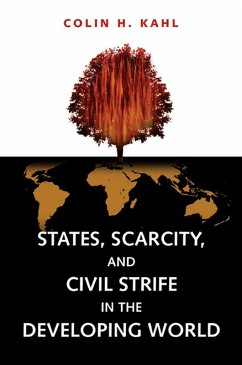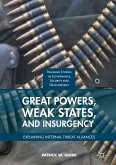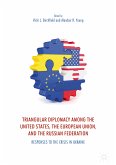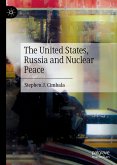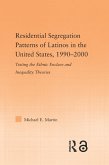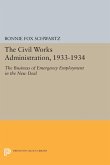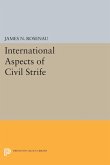Over the past several decades, civil and ethnic wars have undermined prospects for economic and political development, destabilized entire regions of the globe, and left millions dead. States, Scarcity, and Civil Strife in the Developing World argues that demographic and environmental stress--the interactions among rapid population growth, environmental degradation, inequality, and emerging scarcities of vital natural resources--represents one important source of turmoil in today's world.
Kahl contends that this type of stress places enormous strains on both societies and governments in poor countries, increasing their vulnerability to armed conflict. He identifies two pathways whereby this process unfolds: state failure and state exploitation. State failure conflicts occur when population growth, environmental degradation, and resource inequality weaken the capacity, legitimacy, and cohesion of governments, thereby expanding the opportunities and incentives for rebellion and intergroup violence. State exploitation conflicts, in contrast, occur when political leaders themselves capitalize on the opportunities arising from population pressures, natural resource scarcities, and related social grievances to instigate violence that serves their parochial interests.
Drawing on a wide array of social science theory, this book argues that demographically and environmentally induced conflicts are most likely to occur in countries that are deeply split along ethnic, religious, regional, or class lines, and which have highly exclusive and discriminatory political systems. The empirical portion of the book evaluates the theoretical argument through in-depth case studies of civil strife in the Philippines, Kenya, and numerous other countries. The book concludes with an analysis of the challenges demographic and environmental change will pose to international security in the decades ahead.
Kahl contends that this type of stress places enormous strains on both societies and governments in poor countries, increasing their vulnerability to armed conflict. He identifies two pathways whereby this process unfolds: state failure and state exploitation. State failure conflicts occur when population growth, environmental degradation, and resource inequality weaken the capacity, legitimacy, and cohesion of governments, thereby expanding the opportunities and incentives for rebellion and intergroup violence. State exploitation conflicts, in contrast, occur when political leaders themselves capitalize on the opportunities arising from population pressures, natural resource scarcities, and related social grievances to instigate violence that serves their parochial interests.
Drawing on a wide array of social science theory, this book argues that demographically and environmentally induced conflicts are most likely to occur in countries that are deeply split along ethnic, religious, regional, or class lines, and which have highly exclusive and discriminatory political systems. The empirical portion of the book evaluates the theoretical argument through in-depth case studies of civil strife in the Philippines, Kenya, and numerous other countries. The book concludes with an analysis of the challenges demographic and environmental change will pose to international security in the decades ahead.
Dieser Download kann aus rechtlichen Gründen nur mit Rechnungsadresse in A, D ausgeliefert werden.

